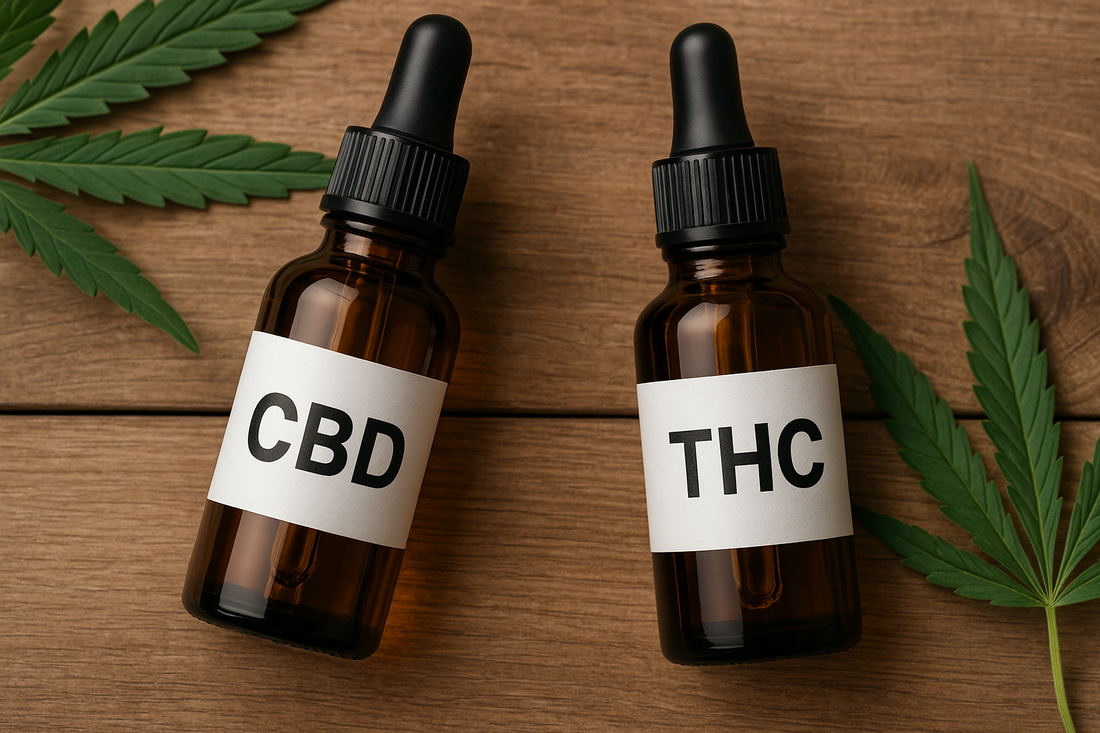
CBD vs. THC: Understanding the Key Differences
Share
With the rise of industrial hemp and cannabis products, two cannabinoids dominate the conversation: CBD (cannabidiol) and THC (tetrahydrocannabinol). Both hail from the Cannabis sativa plant, but deliver remarkably different effects.
Origins & Legality
CBD – Sourced from industrial hemp (legally defined as cannabis containing ≤ 0.2–0.3% THC), it's widely available as oils, edibles, topicals, supplements, and cosmetics.
THC – The primary psychoactive compound in cannabis, prevalent in marijuana rather than hemp. It’s consumed through smoking, vaping, edibles, tinctures, and capsules .
Molecular Similarities—but Different Effects
Both compounds share an identical chemical formula (C₂₁H₃₀O₂) but differ in how their atoms are arranged. This minor structural difference leads to THC binding easily to CB1 receptors (creating a high), while CBD only binds weakly, influencing our system more subtly.
Psychoactivity: High vs. Clarity
- THC binds directly to CB1 receptors in the brain, producing euphoria, altered perception, and heightened sensations.
- CBD—though psychoactive in a broad sense—doesn't intoxicate. It modulates receptors like serotonin and vanilloids to promote calm and focus without impairing cognition.
Therapeutic Uses
CBD is favored for conditions like:
- Anxiety, stress, and mood regulation
- Inflammation and chronic pain
- Epilepsy and some seizure disorders
- Sleep support without drowsiness
THC is commonly used for:
- Pain relief, appetite stimulation, and nausea
- Insomnia relief (sedative effect)
- Some neurological conditions like glaucoma and muscle spasticity
- Side Effects & Safety
THC can cause:
- Impaired memory, coordination, and judgment
- Dry mouth, increased heart rate, anxiety, or paranoia
- Potential psychological dependence in some users
CBD is generally well-tolerated though may cause:
- Fatigue, diarrhea, appetite changes
- Potential drug interactions—consult your healthcare provider
Legal Landscape
- Hemp-derived CBD (≤ 0.3% THC) is federally legal in many regions, though local laws can vary.
- THC remains regulated in many places—legal for recreational or medicinal use only in select states and countries.
The Entourage Effect
Studies—like those in Wired—note that CBD can actually moderate THC’s side effects, such as anxiety or paranoia, by competing for CB1 receptors. Meanwhile, the entourage effect suggests a blend of cannabinoids and plant compounds can enhance overall therapeutic benefits.
Which One Should You Choose?
- Go with CBD for calm energy, anxiety, inflammation, or seizure support without psychoactivity.
- Choose THC when seeking pain relief, appetite stimulation, sleep aid, or recreational effects—with caution about dosage and legality.
- Explore full- or broad-spectrum products that offer both CBD + THC benefits through synergy—but always check your local laws and personal tolerance.
